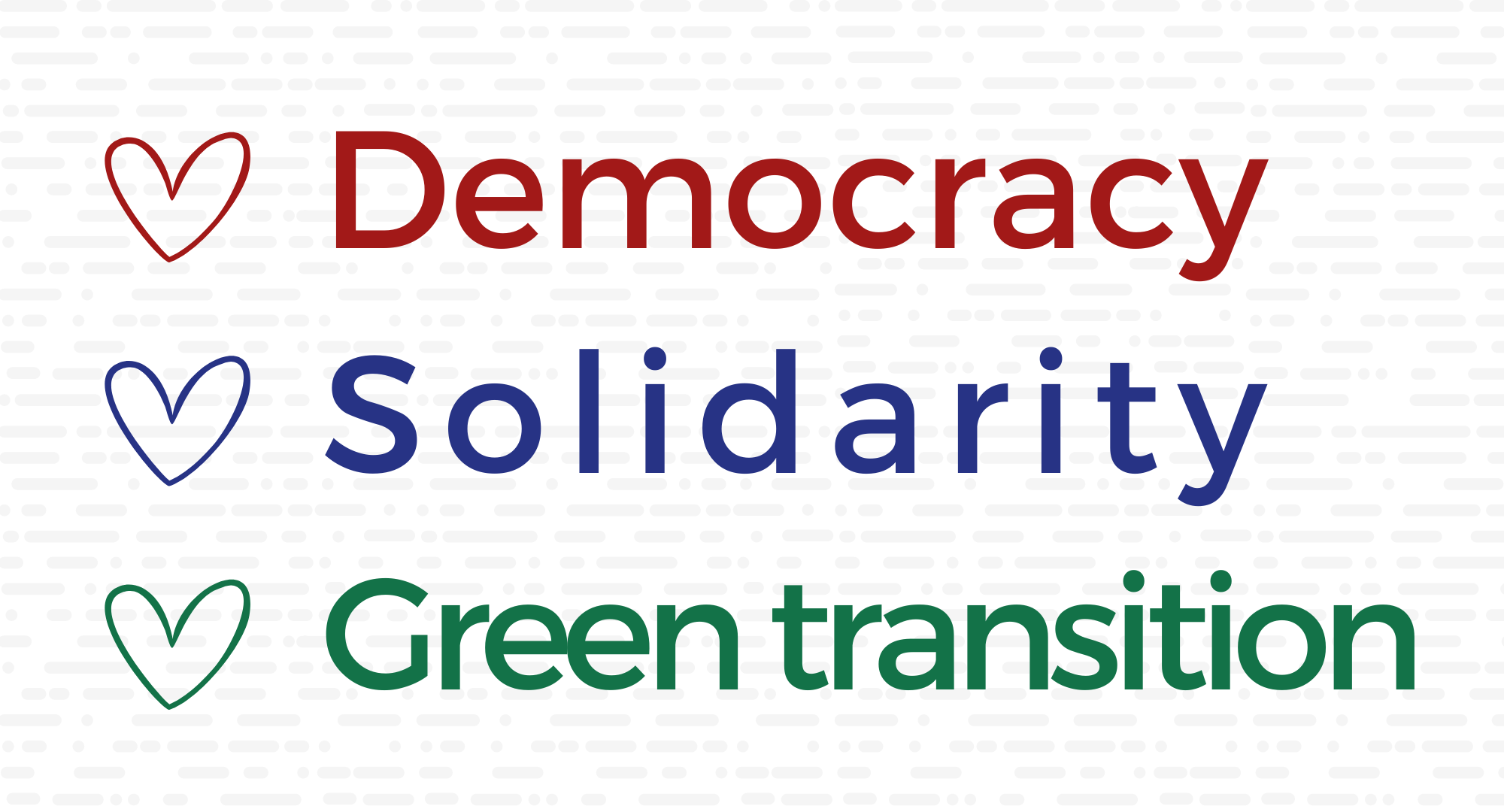From Hungary to Poland – the Civi EU Presidency torch moves on.
In 2024, Hungary held the rotating presidency of the Council of the European Union.
However, the official Hungarian programme overlooked numerous key social and
environmental issues. We launched the Civil EU Presidency to amplify the voice of
Hungarian civil society and to shine a light on the issues left off the official agenda.
Our priorities: Democracy. Solidarity. Green Transition.
Over the course of seven events, we collaborated with Hungarian and international civil society organisations, experts, and researchers to formulate recommendations for both the EU and the Hungarian government.
Our Topics:
1. EU Water Resilience
The European Commission declared water resilience a strategic priority in 2024, making it the main topic of the EU Green Week. Improving water resilience is essential to sustain healthy freshwater ecosystems and to ensure the long-term viability of agriculture and drinking water supply. Our conference aimed to keep freshwater resilience on the EU Commission’s agenda for the 2024–2029 period.
More details here.
2. Forests in the EU – Seeing the Forest behind the Trees
The EU’s Forestry Strategy to 2030 outlines a vision and concrete actions to enhance the quantity, quality, protection, restoration, and resilience of EU forests. Several legislative tools are already on the table but require further negotiation. Our goal was to contribute science-based arguments and the civil society’s perspectives to this process.
More details here.
3. Battery Production
The 1st Civil Battery Industry Conference evaluated the legitimacy of the Hungarian government’s large-scale battery industry development plans. Experts from various fields presented data and research addressing the environmental, public health, societal, and economic implications. The event offered a nuanced discussion of the pressing questions and challenges related to this sector.
More details here.
4. A Juster Green Transition in the EU
According to the Green Legal Platform, the European Green Deal can only succeed if it is implemented equitably. The transition must not overlook the groups most affected by climate change: Roma communities, refugees, migrants, low-income populations, and youth. Ensuring participation, addressing structural disadvantages, and upholding environmental justice—as stated in the Aarhus Convention—are essential. Sustainability must be not only environmental, but also social.
More details here.
5. Towards an EU Civil Society Strategy
A core theme of the Civil EU Presidency was the state of civil society. In recent years, the civic space has been shrinking in many countries. To counter this and support civil society, action is needed at the EU level. Beyond strengthening existing tools, new mechanisms are necessary—ideally, unified within a comprehensive EU Civil Society Strategy built on four pillars: support, protection, empowerment, and inclusive partnership.
More details here.
6. Women in Hungarian Public Life – When will we catch up with Europe?
This event highlighted that increasing women’s participation in public life is not just a matter of equality—it also improves the quality of democratic decision-making. In Hungary, women make up less than 10% of MPs, and as of November 2024, there is not a single female minister in the government. Political parties offer little support for women, and structural barriers persist. Conference participants developed concrete recommendations to increase women’s involvement in politics and public life, based on findings from a nationwide pre-conference survey.
More details here.
7. Strengthening Roma Civil–Government Dialogue
By 2026, all EU Member States must update their national Roma strategies. This conference aimed to foster meaningful cooperation between Roma civil organisations and governments. Roma activists and public officials from Romania, Slovakia, Czechia, Bulgaria, and Hungary shared experiences on civil–government dialogue in their countries and explored ways to ensure genuine Roma participation in both policymaking and implementation.
More details here.
The Hungarian Civil EU Presidency has concluded, but the work continues. Civil society remains a vital actor in Europe’s democratic evolution, and ensuring that the recommendations we formulated are followed up and implemented will be crucial in the years ahead. The torch now passes to Polish civil organisations, who will continue this shared effort during the Polish EU Presidency in the first half of 2025, ensuring the voice of civil society remains a powerful force in European decision-making.
The Civil EU Presidency was organised by the Great Lakes and Wetlands Alliance and the Civilisation Coalition.




